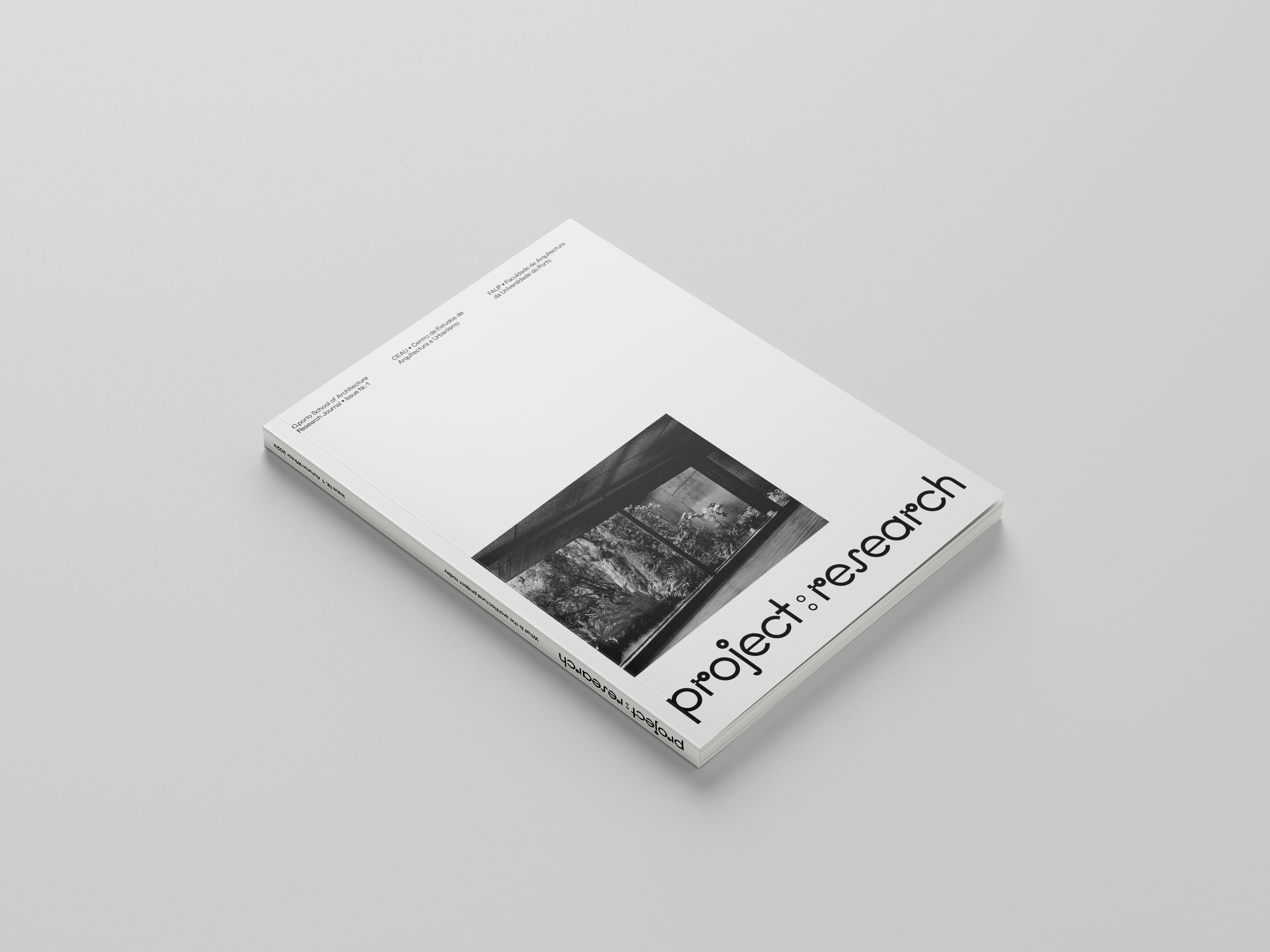Project : Research - O.porto School of Architecture Research Journal
New scientific journal dedicated to architecture

Project : Research - O.porto School of Architecture Research Journal New scientific journal dedicated to architecture
Abstract submission until May 3, 2024
“Project : Research — O.porto School of Architecture Research Journal” (or simply “Project: Research”) emerges as a novel scientific publication, released biannually (twice a year) by the Centre for Studies in Architecture and Urbanism at the Faculty of Architecture of the University of Porto. It is built upon the foundational conviction that the architectural project, serving as both a tool, a process, and an object, embodies a unique and profound mode of intellectual inquiry, supported by empirical evidence.
The architectural project serves as a conduit between abstract concepts and tangible reality, offering a unique lens through which to explore the complexities of the built environment and its relationship with the broader world. Within this realm, the architectural project reveals a rich tapestry of historical narratives, contemporary challenges, and future possibilities, shaping our understanding of the temporal, material, social, and cultural dimensions of our surroundings.
Furthermore, the architectural project embodies a harmonious blend of artistic expression and scientific rigour. It encompasses a diverse array of methodologies, tools, and discourses, each contributing to the process of inquiry, analysis, and creation. This interdisciplinary approach not only enriches our understanding of architecture but also fosters a deeper appreciation for its profound impact on society and culture.
In honouring this tradition of inquiry and innovation, the journal pays tribute to the visionaries and pioneers who conceived the architectural project as a plural, enduring space of experimentation to traversing different eras, interlacing various skills and knowledges, and envisioning lasting futures. Among them is Carlos Ramos, the emblematic director of the O.porto School of Architecture, whose steadfast advocacy for interdisciplinary collaboration has left an indelible mark on architectural education and practice.
With each issue structured around a specific theme and anchored by a collection of insightful “Project Essays,” the journal offers a broad platform for rigorous research and critical discourse within the realm of Architectural Practices. From theoretical explorations to historical analyses, from practical applications to visionary representations, the journal seeks to illuminate the multifaceted nature of architectural inquiry and its enduring relevance in shaping our built environment and collective experience.
Two Calls for Papers are launched simultaneously, each corresponding to an issue of the journal and coordinated by two guest editors. The editors are carefully selected by both the Editorial and Scientific Advisory Board to balance theory and practice, thereby contributing their unique perspectives and insights to the journal’s core pursuits. This approach is founded on maintaining a delicate balance between persisting issues within the discipline and the emergence and urgency of contemporary concerns.
The submission of abstracts for the first two Calls for Papers is now open and will continue until May 3rd.
The first issue will be guest-edited by Marta Caldeira and William Mann, who propose the compelling theme “Álvaro Siza: Housing in the Contested City,” with the aim of actively contributing to the contemporary discussions surrounding housing. Álvaro Siza frequently emphasises the pivotal role of housing in the urban fabric and the architect’s social responsibility in its design. In shaping buildings and spaces, architects establish important relationships between the individual, the community, and broader society; by intervening in existing structures, they uphold past values while envisioning new possibilities. As housing also serves as the foundation for communal services and public life, considerations for its design extend beyond mere living spaces, necessitating a comprehensive urban project. However, this responsibility unfolds within a multifaceted and contested environment, constrained by land values, financial structures, and building regulations, while also influenced by broader urban political movements, social programs, and economic dynamics shaping the city. As Álvaro Siza has frequently observed, the design of housing is a collaborative endeavour, subject to negotiation, contestation, and ongoing evolution.
The second issue will feature Elli Mosayebi and Reto Geiser as guest editors, prompting authors to explore the often overlooked dimension of architecture: Time. In disciplinary discussions, time is frequently viewed through historical or futuristic lenses, yet its profound impact on shaping project processes is frequently disregarded. Architecture uniquely encapsulates the passage of time, with spaces, materials, and building assemblies serving as tangible manifestations of temporal progression. The built environment, capable of enduring for centuries, serves as a repository of knowledge, encapsulating cultural techniques, resource availability, and the aesthetic preferences of architects, builders, and clients. Thus, architecture transcends temporal boundaries, bridging the past and present.
Designed to be accessible in both digital and print formats, the journal is committed to fostering intellectual discourse and contributing to the advancement of architectural knowledge. It ensures a rigorous scholarly process, with content subjected to a double-blind peer review. Embracing an open-access distribution model, the journal guarantees broad accessibility to its content.
All information, including the complete Call for Papers and guidelines for submissions, is available on the journal’s website: